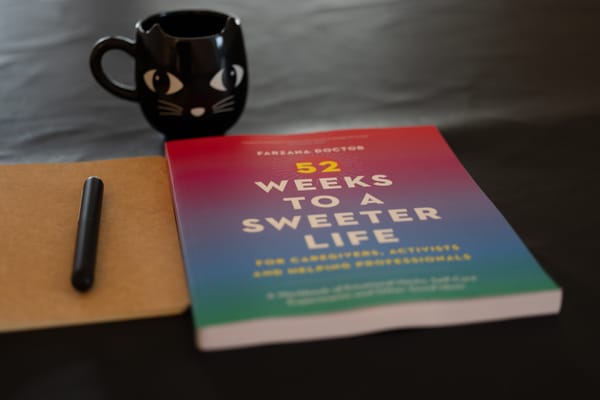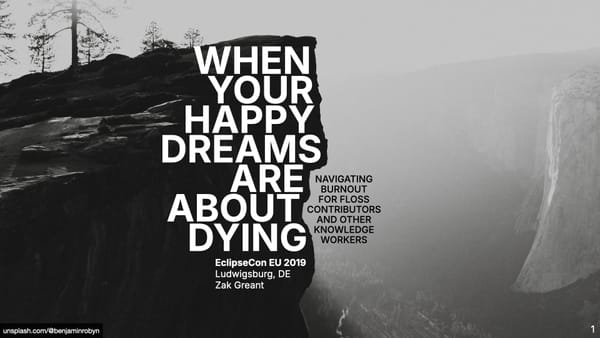Why resurrect old blog posts?
I forget much of what I don't reflect on. Reviving old blog posts and related content gives me a chance to both reflect and remember.

In a word, memory - or the lack thereof.
A few weeks ago, someone reminded me that back in 2006 I'd helped set up a publishing imprint for eZ Systems. I had no recollection of this, even though I'd edited one of the books and we'd published three books in total. Skimming through a PDF of the first book, I could see the signs that I'd worked on it. There are structural choices that often shop up on books that I work on. There are illustrations that I'm sure that I did using OmniGraffle. More clearly, I'm in the credits and acknowledgements. However, at best, I've got fragments of memories of working on the project.

It's not always like this for me. I have old memories that are clear and strong, but fewer that I'd like. When I don't stop to reflect on things, the associated memories may mostly vanish. While this isn't uncommon for people with ADHD, it's frustrating. I may know that I've met someone, but not remember where. I may be fond of someone but not recall why that is. I worry that I'll repeat the shitty things that I've done because I don't remember them. I find myself mired in regretful self-consciousness in intimate conversations when I strongly suspect that I've been at this point before, but I'm not sure.
Digging through old blog posts (thanks to the Wayback Machine), search and old emails (thanks Google – though I'm often vexed by what you do in the name of monetization, I confess that I still rely deeply on your services), files squirreled away in various file hosting services, and myriad other sources, I can piece together a much better recollection of what went on – and with the benefit of a decade or two of experience to help make sense of what happened.
But why repost?
It gives some purpose and framing to the work. When I go through various archives on my own, I find that I struggle to give structure and form to what I'm reviewing. With the notional idea of an audience and the flexible yet clear format of a blog, there's a constructive pressure that helps me process.
I've benefitted greatly from people sharing their process for making sense of their lives and the world, and hope to the do the same.
I'm proud of some of the things that I've done and helped bring into the world. It's good for my mental health to remember all the things that I've worked on. It's also good for fostering humility when I consider the various balls that I've dropped over the years.
To the future
I'm working on an ambitious and complex impact startup where many of my past experiences are relevant – but only if I both remember and reflect on them. Each time that I dig into my hazy remembrances of past work – be it at the Mozilla Foundation trying to understand how information technologies shape society or trying to improve the state of the art for legal agreements at Lex Publica – I help piece together another path to helping address the global information crisis.




